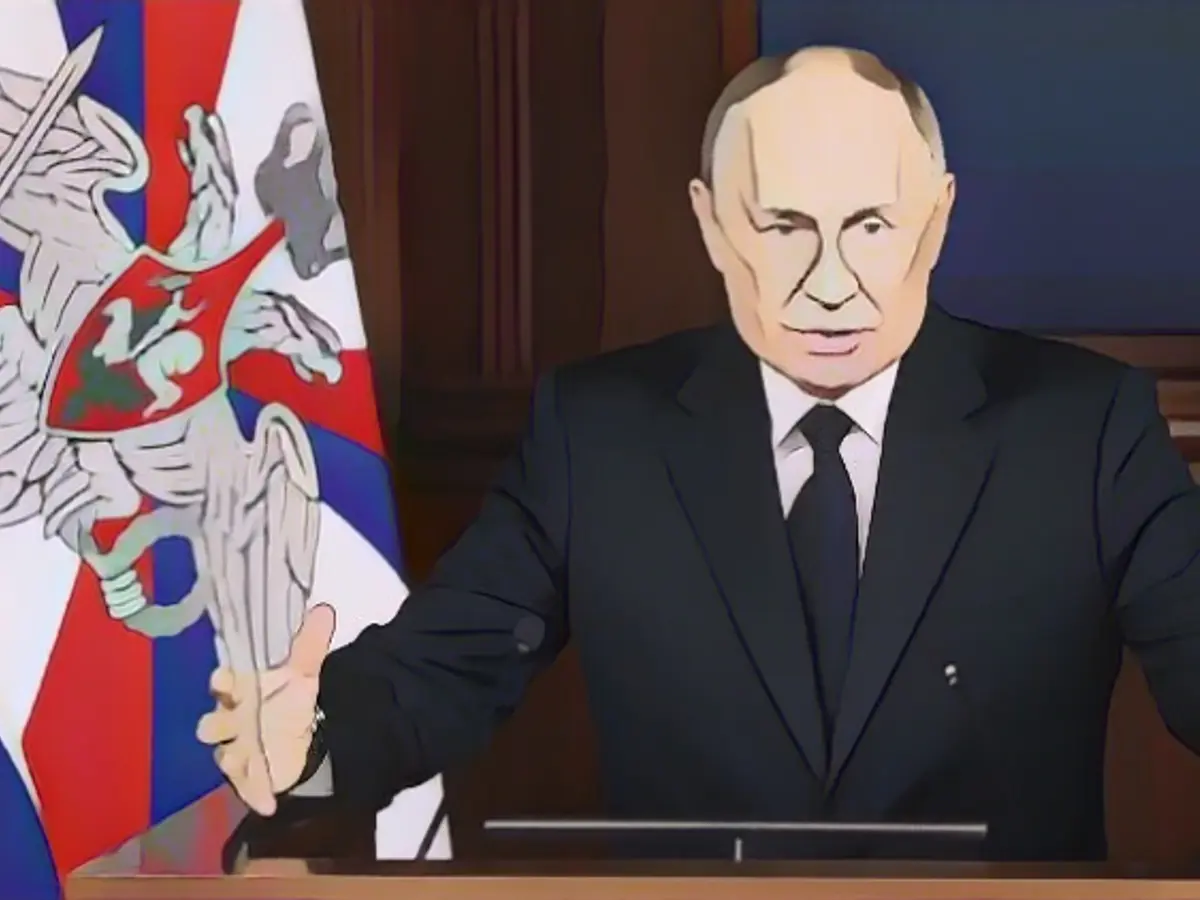Is NATO now in "trouble"?
Kremlin leader Putin threatens Finland with "problems" after it joins NATO. Western military experts do not believe that a military attack on the neighboring country and thus on the North Atlantic Alliance is imminent. That it could happen in the future, however, is more likely.
"What sense does it make for Russia to attack anyone?" said Kremlin spokesman Dmitry Peskov on Russian state television on February 20, 2022. Four days later, Russia did just that and launched the invasion of Ukraine, which continues to this day.
Vladimir Putin used similar-sounding words in an interview broadcast on state television on Sunday in an attempt to allay the West's fears that his country poses a threat to NATO. "Russia has no reasons, no interest - geopolitically, economically or militarily - in fighting with NATO countries," said the 71-year-old. Such fears were "complete nonsense".
Immediately afterwards, however, Putin accused the NATO states of artificially stirring up a conflict between Russia and Finland and "dragging" the latter into the alliance. Finland joined NATO on April 4 in response to the Russian invasion of Ukraine. Russia had no problems with Finland, "but now there will be", Putin threatened. Russia would build up the Leningrad military district around the metropolis of St. Petersburg in the north-west of the country and station military units, he explained.
Should NATO now fear an imminent attack on Finland? Russia's threats against the West are nothing new. Putin and other high-ranking politicians repeatedly threaten the USA and NATO with the use of nuclear weapons. Verbal attacks against neighboring countries are also not uncommon.
"Gift from Stalin", "invented by Lenin" ...
In July, Putin said that Russia would respond "with all the means at our disposal" after Warsaw sent troops to the Belarusian-Polish border following the transfer of Wagner Group fighters to Belarus. He described the western regions of Poland as a "gift from Stalin" to the Poles after the Second World War. Similar rhetoric was also used before the Russian invasion of Ukraine - the Russian president denied the neighboring country statehood and claimed that Ukraine was "invented by Lenin in 1922 when the Soviet Union was founded".
Against this backdrop, Finland's concerns about a possible Russian invasion seem justified. After all, Finland only gained its independence from Russia in 1917 in the course of the October Revolution. Before that, it was an autonomous territory within the Russian Tsarist Empire. During the Winter War of 1939 - 1940, the Soviet Union tried in vain to occupy Finland. As a result of the war, the country had to cede part of its territory, but was able to retain its independence.
"Putin perceives the West as weak"
Although experts from the US think tank "Institute for the Study of War" (ISW) do not see a direct military threat in Putin's current statements, they do see a connection between the declining support for Ukraine and a possible escalation of Russia's conflict with NATO in the future.
Putin's current threats are part of the long-standing Russian narrative about an attack on NATO, which existed even before Finland joined the alliance. "Putin's interview indicated that he continues to perceive the West as weak," writes the ISW in its latest situation report. Military expert Markus Reisner takes a similar view. "Russia sees itself in a position of strength and is already directing threats at NATO countries beyond Ukraine," said the colonel of the Austrian Armed Forces in an interview with ntv.de.
With regard to the planned establishment of a new military district, Reisner explained: "This shows very clearly that the Kremlin immediately recognizes and uses the hesitation in the West as an opportunity. Not only on the military-political level, but also operationally, on the battlefield."
Stopping aid to Ukraine could have serious consequences for NATO
For Putin, it is only a matter of time before the West's support for Ukraine comes to a halt, explained the military expert. If the West were to stop its military aid to Kiev, ISW believes that sooner or later Ukraine's ability to fend off the Russian military would collapse, which could lead to an occupation of Ukraine by Russia.
The Kremlin's repeated, hostile rhetoric towards NATO, combined with Russia's potential future military capabilities in the event of a victory in Ukraine, poses a credible - and costly - threat to Western security, according to ISW experts. The West would be forced along almost all of NATO's eastern border to prepare for defense against possible Russian military action, ISW warns. "Supporting Ukraine offers the West the best opportunity to avoid these costs and the extended Russian threat," the US experts conclude.
Read also:
- Year of climate records: extreme is the new normal
- Precautionary arrests show Islamist terror threat
- UN vote urges Israel to ceasefire
- SPD rules out budget resolution before the end of the year
- Following Finland's decision to join NATO, Vladimir Putin expressed concerns, stating that Russia may encounter "problems" with Finland as a result.
- Russia's invasion of Ukraine in 2022 occurred just four days after Vladimir Putin dismissed the notion of Russia attacking anyone, saying it had no interest in fighting with NATO countries.
- Contrary to Putin's assertion that Russia had no reasons to fight with NATO countries, he accused NATO states of artificially instigating a conflict with Russia and pulling Finland into the alliance after Finland joined NATO in April 2022.
- The European Union (EU) and NATO have been monitoring the situation closely, with concerns about potential Russian aggression towards Finland in light of its recent membership in NATO.
Source: www.ntv.de








